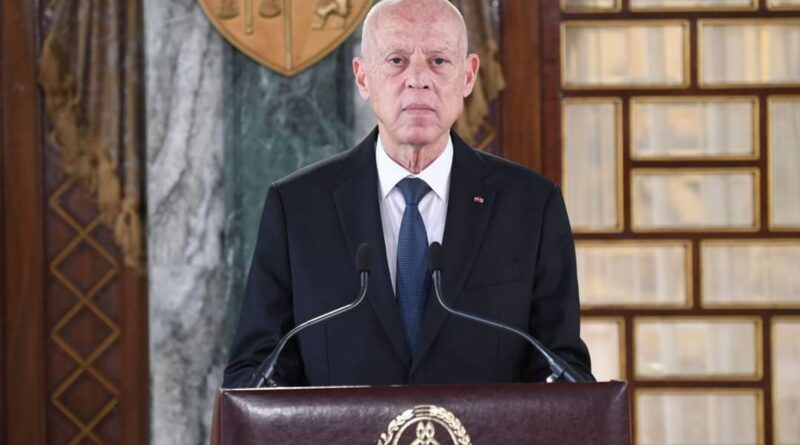Tunisia: Tunisia’s Descent into Dictatorship: International Scrutiny Urgently Needed
Tunisia, once a democracy, has fallen into the grip of a dictator. A recent mass trial of critics of President Kais Saied, resulting in appalling sentences of up to 66 years, marks a new low point in an ongoing authoritarian crackdown.
The trial offered a mockery of justice. Some 40 people faced broad charges of ‘plotting to destabilise Tunisia’ and ‘membership of a terrorist group’. Over half were tried in absentia, having fled a country where fair trials have been made impossible. Independent observers were barred and defence lawyers prevented from presenting evidence, while some defendants were deemed too dangerous to be allowed to attend court. Saied had already labelled them traitors and terrorists before proceedings began.
The sham trial forms part of a systematic campaign to crush dissent. Most opposition leaders now languish in prison. Critics face arbitrary detention in harsh conditions, often denied access to family members, lawyers and medical care. Ahmed Souab, a defence lawyer who dared call the trial a farce, was promptly detained afterwards, in a clear warning to others who might speak out.
Saied is also closing the door for Tunisians seeking international justice. In March, his government withdrew a declaration that allowed individuals and civil society organisations to bring cases to the African Court on Human and Peoples’ Rights . This body had previously ordered Tunisia to suspend Saied’s decree-law that he used to sack judges and allow detainees access to medical care, family and lawyers – rulings the government consistently ignored. When withdrawal takes effect next March, even this limited avenue for accountability will vanish.
Tunisia has fallen far. After its 2011 revolution toppled a longstanding dictator, the country seemed to be forging a new democratic path. But Saied, after winning the presidency in 2019, has methodically dismantled hard-won freedoms. In July 2021, he dismissed the prime minister and suspended parliament, then changed the constitution in 2022 to grant himself near-absolute power, including control over the army and judiciary.
This power grab was rubber-stamped through a referendum with low turnout, before which many opposition figures were jailed. The December 2022 parliamentary election, held under a new voting system designed to weaken political parties, produced a compliant legislature filled with Saied supporters. Saied’s October 2024 re-election was predetermined, with only two other candidates allowed – one a supporter, the other sentenced to 12 years in prison days before the vote.
Saied maintains some popular support by cynically redirecting public frustration over economic failures toward Black African migrants. He has repeatedly accused them of crimes and claimed they threaten national identity. The consequences have been dire: migrants have been rounded up and abandoned at borders, refugee camps have been bulldozed and Black Africans now face increased hostility and economic hardship . Organisations that once assisted them have been criminalised and their leaders detained .
Most troublingly, democratic states have largely enabled Saied’s abuses. As Saied intensified his racist campaign in 2023, the European Union (EU) struck a deal with him worth up to US$1.3 billion, including for cooperation in preventing migrants crossing the Mediterranean. This package included US$120 million specifically for strengthening Tunisia’s border control capabilities.
The international community is now at last showing signs of concern. In January, the EU was forced to increase human rights scrutiny over its partnership funding after revelations of appalling violations by security forces against migrants. The UN human rights chief criticised Tunisia’s pattern of arbitrary detention in February, and France and Germany recently expressed concern about the unfair trial and excessive sentences.
Saied predictably dismisses these criticisms as ‘blatant interference’, but democratic states shouldn’t be deterred. They should make their partnerships contingent on respect for fundamental rights, starting with the release of political prisoners. The EU must ensure financial support is provided only when the government demonstrates tangible progress in restoring human rights.
Last year a leaked document revealed EU officials are aware of the credibility risk from their partnership with such a prolific human rights violator. But the fundamental question remains: how much more must Saied reveal himself as a dictator before the international community takes meaningful action?
*CIVICUS Editor-in-Chief, co-director and writer for CIVICUS Lens and co-author of the State of Civil Society Report .
For interviews or more information, please contact research@civicus.org

